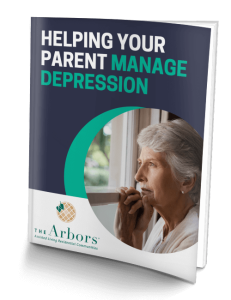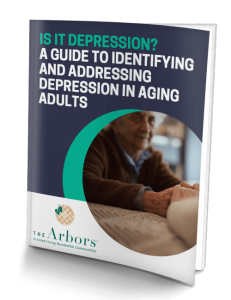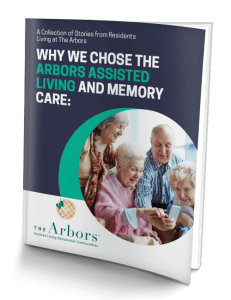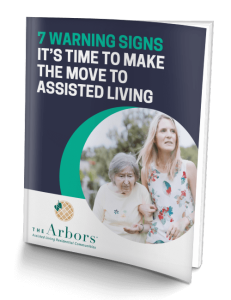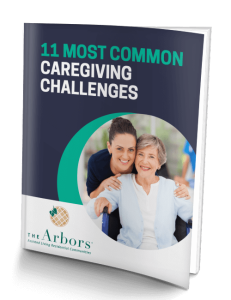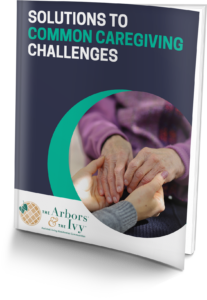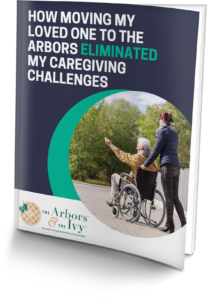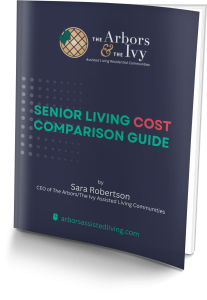Being a caregiver can be one of the most important and personally rewarding roles a person will play in their lifetime. But after the fifth time your mom refuses to take a shower or your dad complains about the dinner you made, it can also feel like one of the most challenging roles.
Read More about our 4 Tips for Handling Difficult Parents:
- Open Communication
- Stubborn Reactions Often Represent Fear Respones
- Dementia Diagnosis Changes the Game
- Dealing with Depression
Maybe your elderly parent has always been critical or headstrong, but some difficult behaviors can also be indications of something else, whether it be depression or loneliness to something as serious as dementia. Either way, it can be really hard.
If you’re dealing with a stubborn, negative, irrational, or depressed parent, here is a closer look at some of the most common mental and physical causes as well as tips for coping with them.
Dealing with a Stubborn Aging Parent?
How many times have you told our dad that he should consider a hearing aid only to get the same response: “My hearing is just fine!” How often does your mom ask for help in the kitchen only to insist on doing things “her way.”
One of the most common challenges family caregivers face is handling a stubborn parent. In fact, it’s so common that stubbornness is a self-reported problem in 90 percent of families with aging parents.
If you’re only offering your aging parent a helping hand, but feel like you can’t do anything right or are being met with stubborn resistance when you make a simple suggestion that would benefit them, there could be a few factors at play, including:
- Fear of losing control of their lives
- Feeling they are losing their independence
- Fear of aging and their own mortality
- Anger
- Dementia
For instance, the thought of moving into an assisted living community can feel like just another change that brings more loss of control — and thinking about change and the unknown can be scary. If your parent is avoiding the assisted living conversation because they’re afraid of change, what seems like stubbornness might simply be an opportunity for a heart-to-heart with your parent.
However, some seniors are stubborn because it might be a sign of dementia.
“It’s possible that they’ve forgotten how to do something,” says Jonathan Athanas, Executive Director of The Arbors at Dracut. “Now they’re communicating that way instead of saying, ‘I can’t do it.’ For instance, if Mom or Dad are resistant to bathing, they might have forgotten the functionality of taking the soap and putting it on the washcloth.’”
Coping Tip
Experts say open communication about needs, desires, and goals is crucial in moving past stubbornness and into collaboration.
For example, if your parent refuses to talk about assisted living by saying, “I’m not ready,” try to discern what their concerns are and address them honestly and thoughtfully. “Ask them about what the day looks like when they are ready,” Athanas says. “Does that day look like when you have a walker? Does it look like when you stop driving? Does it look like when we have to come over daily to make sure you’ve taken your meds or you’ve eaten?”
If you’re concerned the stubbornness is a sign of dementia, schedule a visit with your loved one’s doctor. If your parent’s stubbornness rears its head again and you struggle to get your loved one to make a doctor’s appointment, Helena Chang Chui with the USC Memory and Aging Center at Keck Medicine of USC offers some tips for getting your loved one to the doctor for an early dementia diagnosis.
Dealing with a Negative Elderly Parent?
Does it sometimes feel like you can’t do anything right? Like you’re a verbal punching bag? Perhaps your parent has always been a chronic complainer, but it’s also likely that aging and illness can be the driving factors behind the bitterness.
For example, joint pain can be a common source of discomfort for older adults. Instead of complaining about the pain — which means another trip to the doctor’s office — they may express their frustration and discomfort by criticizing everything around them.
Boredom is another source of frustration for seniors, especially those who live at home alone. If your aging parent feels like they no longer have a sense of purpose — now that they’ve left the workforce, have finished raising their children, and no longer socialize with friends — they may have a more negative mindset.
Other common sources of negativity include urinary tract infections, medications that cause personality changes, and dementia. That’s why it’s so important to communicate with your loved one’s doctor about any changes in mood and behavior.
Coping Tip
It is important to remember that anger is often an outward expression of inner fears, and that although the complaints may seem to be hurled in your direction, it often has little if anything to do with you.
If your dad is on a negative rant, Athanas suggests redirecting the conversation to a more positive slant. “When parents go on that negative downward spiral of everything is bad, I think the best way to redirect them is to ask them about something they are grateful for,” he says. “For instance, if your dad has foot neuropathy and walking is a challenge, acknowledge that you can’t fix it and that that’s hard, but then ask him about some of the things he’s grateful for, such as being able to enjoy a hearty meal or that he’s able to read a book.”
If that fails, it’s important to prioritize your mental health and establish reasonable boundaries.
Dealing with an Irrational Aging Parent?
Is your dad convinced that your son stole his wallet when you came over to dinner last night? Or perhaps your mom keeps asking when her husband is coming home for dinner, but your dad passed away years ago.
Suspicious or persisting fears that strike family members as irrational, absurd, or ridiculous are often related to underlying cognitive impairment. Although not grounded in reality, the situation is very real to the person with dementia.
Coping Tip
If your parent has received a dementia diagnosis, you will see increased problems with communication as the disease progresses.
“For example, they may think you’re the brother instead of the son,” says Carrie Wilson, Director of the Reflections Memory Care Program at The Ivy at Ellington. “Don’t necessarily correct them. The correction brings on embarrassment and frustration. That’s hard for anyone. Who wants to constantly be told you’re wrong?”
Instead, of reality-orienting them, which usually only escalates their behaviors, try to get on their level.
“Live in their world if they get confused,” Wilson says. “Living in their world to give them the best moments — instead of correcting every inaccurate statement — can make a huge positive aspect in the person’s life with dementia. And it can make your life more enjoyable, too.”
If your parent hasn’t yet received a diagnosis, tell their doctor about what you’re seeing. It might be time to start the testing process.
Dealing with a Depressed Elderly Parent?
Your parent might be in their golden years, yet they might also still be struggling with depression. Older adults are at an increased risk of experiencing depression, affecting more than 6.5 million of the 35 million Americans aged 65 or older, according to The National Alliance on Mental Illness.
Maybe your mom has experienced big life changes, such as the death of loved ones, retirement, or declining health, which can sometimes trigger depression. Loneliness, loss of function and ability, medication side effects, and family history can all contribute to depression.
The good news is depression can be treated.
Coping Tip
If you notice your loved one exhibiting signs of depression, it is important to talk to them. But keep in mind there is a stigma that surrounds psychological symptoms and mental illness, particularly for their generation.
“It’s important to honor your family member,” says Nancy Ishkanian, Resident Care Director at The Arbors at Stoneham. “Maybe you say something like: ‘It looks like you don’t feel so great right now. I think you could probably feel better. I wonder if there’s a way we could talk to your doctor. You don’t have to do anything you don’t want to do. But I wonder if there’s a way you could feel better.’ That’s hard to argue with.”
Then suggest that your mom see their primary care provider, “especially if she’s had this doctor for 20 years,” says Karen Detka, Resident Care Director at The Arbors at Westfield. “The older generation always listens to the doctor. If the doctor says, ‘I’m noticing you’re just not your happy self when you come to see me anymore,’ that can really help Mom admit it more easily.”
When your loved one shows signs of these difficult behaviors, practice patience while trying these methods. But if these difficult behaviors become too much or you feel unsafe while caring for your loved one, it may be time to seek additional help.
Depression, dementia, boredom, and social isolation are all signs it’s time to start considering making the move into assisted living. For a closer look at the red flags, download our eBook 7 Warning Signs It’s Time to Make the Move to Assisted Living.
What Our Happy Families Say About Us On Google
My grandfather recently moved into The Arbors and our family couldn’t be happier! From the first phone call to move in, our family was treated with love, compassion and understanding. It was a difficult decision but the Arbors team made it easier. Our grandfather left the home he has lived in for 50+ years and was uncertain about the transition. He has made friends, has more of a social life than me and raves about the food! We couldn’t be happier.
Sam B.
⭐⭐⭐⭐⭐

















